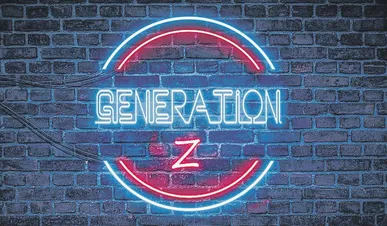
Gen Z: what now… and where do we go from here?
If there was a prize for the number of key people you’ve influenced before you are 18, Greta Thunberg would probably be a strong contender. She has had an extraordinary time in the last year, speaking at major conferences, going to key places, and meeting so many important world leaders. It’s sometimes hard to remember she will only be 18 later on in 2020. She is part of the Gen Z generation.
The large numbers of people born after the end of the Second World War, especially in the US and the UK, caused the phrase ‘baby boomer’ to be popular for a while, quickly shortened to just ‘boomer,’ and usually taken for simplicity as those born between 1945 and 1963. Those coming afterwards were far fewer in number; they ‘stopped the boom’, or ‘busted’ it, and so for a while were called the ‘baby busters’. This is a disparaging title, however, and when Douglas Coupland published his book Generation X: Tales for an Accelerated Culture in 1991 his phrase instantly stuck and they became ‘Gen X’ (born 1964 to 1982) from then on.
Should evangelicals promote Lenten practices?
Once more, this late winter, we have begun to hear and read about the observance of Lent.
In recent days, I have read three blog articles which were supportive (in varying degrees) of the practice. The religion pages of our weekend newspaper gave us much the same news: it’s time for Lent and thoughtful Christians will, of course, be observing it.